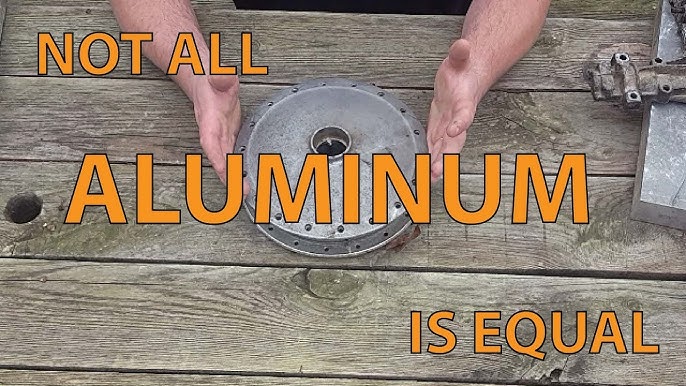The 6-Minute Rule for Stahl Specialty Company
The 6-Minute Rule for Stahl Specialty Company
Blog Article
Getting The Stahl Specialty Company To Work
Table of ContentsAbout Stahl Specialty Company6 Easy Facts About Stahl Specialty Company ExplainedExcitement About Stahl Specialty CompanyStahl Specialty Company for BeginnersHow Stahl Specialty Company can Save You Time, Stress, and Money.
The refined difference depends on the chemical content. Chemical Comparison of Cast Aluminum Alloys Silicon promotes castability by minimizing the alloy's melting temperature and improving fluidity during casting. It plays an essential role in enabling intricate mold and mildews to be loaded properly. Additionally, silicon adds to the alloy's toughness and wear resistance, making it useful in applications where toughness is vital, such as auto components and engine parts.It also improves the machinability of the alloy, making it much easier to process right into finished products. In this means, iron adds to the general workability of light weight aluminum alloys. Copper increases electric conductivity, making it beneficial in electrical applications. It additionally improves corrosion resistance and includes in the alloy's general strength.
Manganese adds to the stamina of aluminum alloys and improves workability. Magnesium is a lightweight element that gives strength and effect resistance to aluminum alloys.
It permits the production of lightweight elements with excellent mechanical residential or commercial properties. Zinc boosts the castability of aluminum alloys and assists control the solidification process throughout spreading. It boosts the alloy's toughness and hardness. It is typically discovered in applications where complex shapes and fine details are essential, such as ornamental spreadings and particular automotive parts.
Getting The Stahl Specialty Company To Work
Since aluminum-silicon alloys have great casting homes, high gas residential properties, basic processes, and outstanding rust resistance, aluminum-silicon alloys are most frequently used in the die-casting industry in the house and abroad. At the very same time, aluminum-silicon alloys are likewise fairly very early and widely recognized alloys established and utilized in die-casting. After continual research and improvement, the majority of the current international mainstream aluminum-silicon alloys have actually been settled and are absolutely nothing even more than A356, A360, A380, ADC12, B390, and A413.
The main thermal conductivity, tensile strength, return strength, and elongation differ. Amongst the above alloys, A356 has the highest thermal conductivity, and A380 and ADC12 have the lowest.

How Stahl Specialty Company can Save You Time, Stress, and Money.
In precision spreading, 6063 is fit for applications where elaborate geometries and premium surface coatings are vital. Examples include telecommunication enclosures, where the alloy's superior formability enables sleek and cosmetically pleasing styles while preserving architectural stability. In the Lights Solutions industry, precision-cast 6063 elements produce classy and effective lights components that require intricate shapes and excellent thermal efficiency.
(http://go.bubbl.us/e742bb/4e3d?/Stahl-Specialty-Company)
The A360 displays superior elongation, making it suitable for facility and thin-walled components. In precision spreading applications, A360 is well-suited for markets such as Consumer Electronics, Telecommunication, and Power Devices.

In precision spreading, aluminum 413 radiates in the Customer Electronic Devices and Power Tools markets. This alloy's superior deterioration resistance makes it an excellent option for exterior applications, guaranteeing durable, resilient items in the discussed sectors.
Unknown Facts About Stahl Specialty Company
When you have determined that the light weight aluminum pass away casting process appropriates for your project, an essential following step is picking one of the most proper alloy. The light weight aluminum alloy you select will substantially impact both the spreading procedure and the residential properties of the final product. Due to this, you have to make your choice very carefully and take an educated strategy.
Identifying the most ideal aluminum alloy for your application will certainly indicate weighing a wide variety of qualities. These relative alloy attributes comply with the North American Die Spreading Organization's guidelines, and we have actually split them right into two groups. aluminum metal casting. The initial category addresses alloy attributes that affect the manufacturing procedure. The second covers attributes affecting the properties of the end product.
The alloy you choose for die casting directly influences several aspects of the casting process, like just how easy the alloy is to collaborate with and if it is susceptible to casting issues. Warm breaking, additionally referred to as solidification breaking, is a regular die spreading defect for aluminum alloys that can lead to interior or surface-level splits or cracks.
How Stahl Specialty Company can Save You Time, Stress, and Money.
Specific aluminum alloys are much more at risk to warm fracturing than others, and your option must consider this. One more common defect located in the die spreading of aluminum is die soldering, which is when the cast adheres to the die wall surfaces and makes ejection hard. It can damage both the actors and the die, so you should try to find alloys with high anti-soldering properties.
Deterioration resistance, which is already a notable feature of aluminum, can vary substantially go to this site from alloy to alloy and is a necessary characteristic to take into consideration depending upon the environmental problems your product will certainly be exposed to. Put on resistance is one more residential property generally looked for in aluminum products and can differentiate some alloys.
Report this page